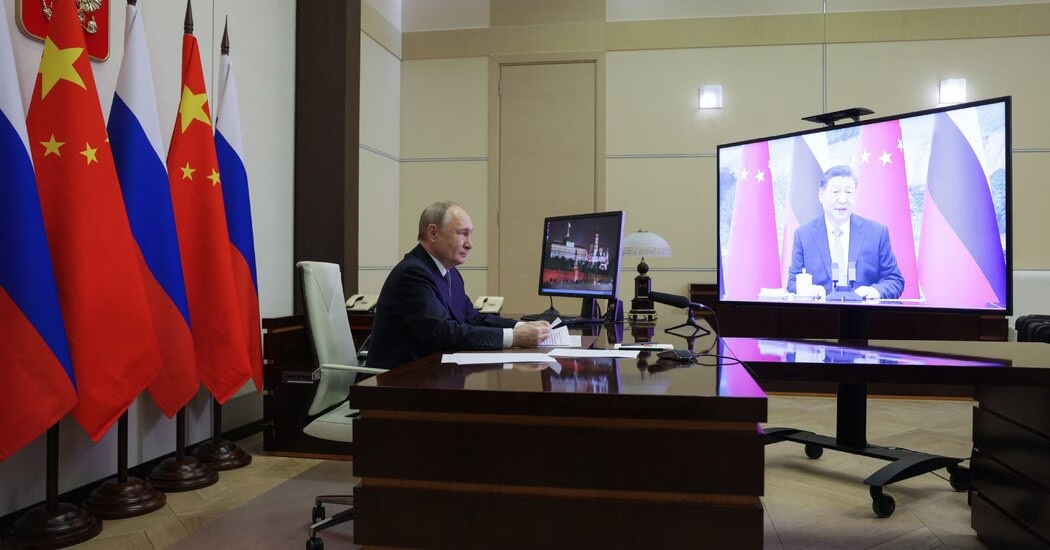In a video call with Russian President Vladimir Putin on Monday, China’s leader, Xi Jinping, expressed his deep friendship and support for Russia, emphasizing that China and Russia are “true friends who have been through thick and thin together,” according to Chinese state media. This statement seems to be a direct response to speculation that the Trump administration might succeed in driving a wedge between Beijing and Moscow.
Xinping further elaborated that China and Russia are good neighbors who won’t move away and that their relationship is not influenced by any third party, which appeared to be a subtle reference to the United States. He added that the two countries’ foreign policies are for the long-term, indicating a focus on sustained cooperation.
The Kremlin mirrored China’s cordial sentiment, describing the conversation between Xi Jinping and Vladimir Putin as “warm and friendly” and asserting that the Russian-Chinese foreign policy link is the most important stabilizing factor in international affairs. They emphasized that the relationship is “not subject to external influence,” clearly rejecting the idea that the United States could drive a wedge between them.
This call was the second between Xi Jinping and Vladimir Putin in just over a month, coming less than two weeks after President Trump upsetted U.S. policy towards Russia by showing support for Putin’s stance on the war in Ukraine and excluding Ukraine from peace negotiations. Trump placing favor on Putin’s side of the conflict has fueled speculation that Washington is aiming to split Russia and China, considering China a more significant threat to U.S. interests.
Trump’s special envoy to Ukraine, Keith Kellogg, announced earlier that the Trump administration hopes to pressure Putin to weaken his ties with North Korea, Iran, and China. However, analysts express skepticism over the possibility of driving a wedge between China and Russia, noting the unprecedented strength of their current relationship. Both leaders have announced a “no limits” partnership, and since the Ukraine invasion, China has supported Russia’s war efforts through oil purchases and technology exports.
Xi Jinping and Vladimir Putin also share an ideological opposition to Western influence, blaming the United States for hindering their global ambitions and seeking to reshape the global order to weaken Washington’s dominance. They both recognize the strategic importance of their relationship and their mutual need for each other, as stated by Sergey Radchenko, a professor at the Johns Hopkins School of Advanced International Studies specializing in Chinese-Russian relations.
Radchenko believes that Beijing is likely uncomfortable with Trump’s attempt to court Putin, but doubts that Putin would see his interests better served by aligning more closely with the United States than with China. In May, Xi Jinping is scheduled to visit Moscow to attend the commemorations of the Soviet victory over Nazi Germany in World War II. During the call, Putin informed Xi about recent Russian-American contacts and expressed that China supports the dialogue between Russia and the United States, as well as being ready to contribute to a peaceful resolution of the Ukrainian conflict.
However, China has not yet described Russia’s invasion of Ukraine as a “war.”
Source: https://www.nytimes.com/2025/02/24/world/asia/xi-putin-call-russia-china-trump.html





